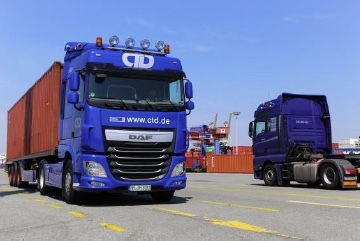
Digital container release with a blockchain option for German Ports

A new platform called “German Ports” will offer digital release for import containers with a blockchain option.
German IT providers and port community system specialists DAKOSY AG and dbh Logistics IT AG have announced that by the end of 2021 the first shipping companies and forwarders will be connected by a new platform for the release of import containers, called “German Ports”.
The platform will cover the ports of Hamburg, Bremerhaven, Bremen and Wilhelmshaven and offer multiple options for the release process, providing users with choices in technology and processes.
“DAKOSY and dbh are now making blockchain technology available to their users for the first time,” the companies said. “Blockchain’s suitability and practicality for the release process has already been confirmed as part of the IHATEC research project ROboB. Another incentive for the rapid implementation of this project is the high level of interest among carriers in digitalising the release process.”
The companies are offering an easy transition for carriers, forwarders, transport companies and terminals alike. “Our solution for the digitalised release process is based on existing platforms and processes that are already being extensively used by the stakeholders in German seaports,” said Dirk Gladiator from DAKOSY. The application will be available in both the Hamburg and Bremen Port Community Systems. In Hamburg, this will be integrated into the Import Message Platform (IMP), and in the ports of Bremen/Bremerhaven and Wilhelmshaven, as a part of the Business Integration Platform (BIP).
“Parallel to the proven IMP and BIP platforms, we are building the framework for blockchain in order to make it available as a hybrid alternative in the next step. We are already preparing the test phase,” said Holger Hübner, Head of Port Solutions at dbh, adding that the digitalised process will meet all requirements for security and verification of identities.
At the moment, release order information is mostly exchanged and confirmed between shipping lines, forwarders and their trucking service providers via fax, e-mail or telephone. “The manual process causes a lot of extra work for everyone, as the players have to engage in bilateral dialogue for each individual container to organise authorisations and empty container returns,” concur Hübner and Gladiator.
“With the use of the established IMP and BIP platforms and the optional addition of blockchain, the strict requirements for access authorisations and secure IT processes have now been met. Release is a sensitive process, as the release order entitles the holder to release the container, which often contains goods of considerable value,” the companies concluded.
Source : World Cargo News


